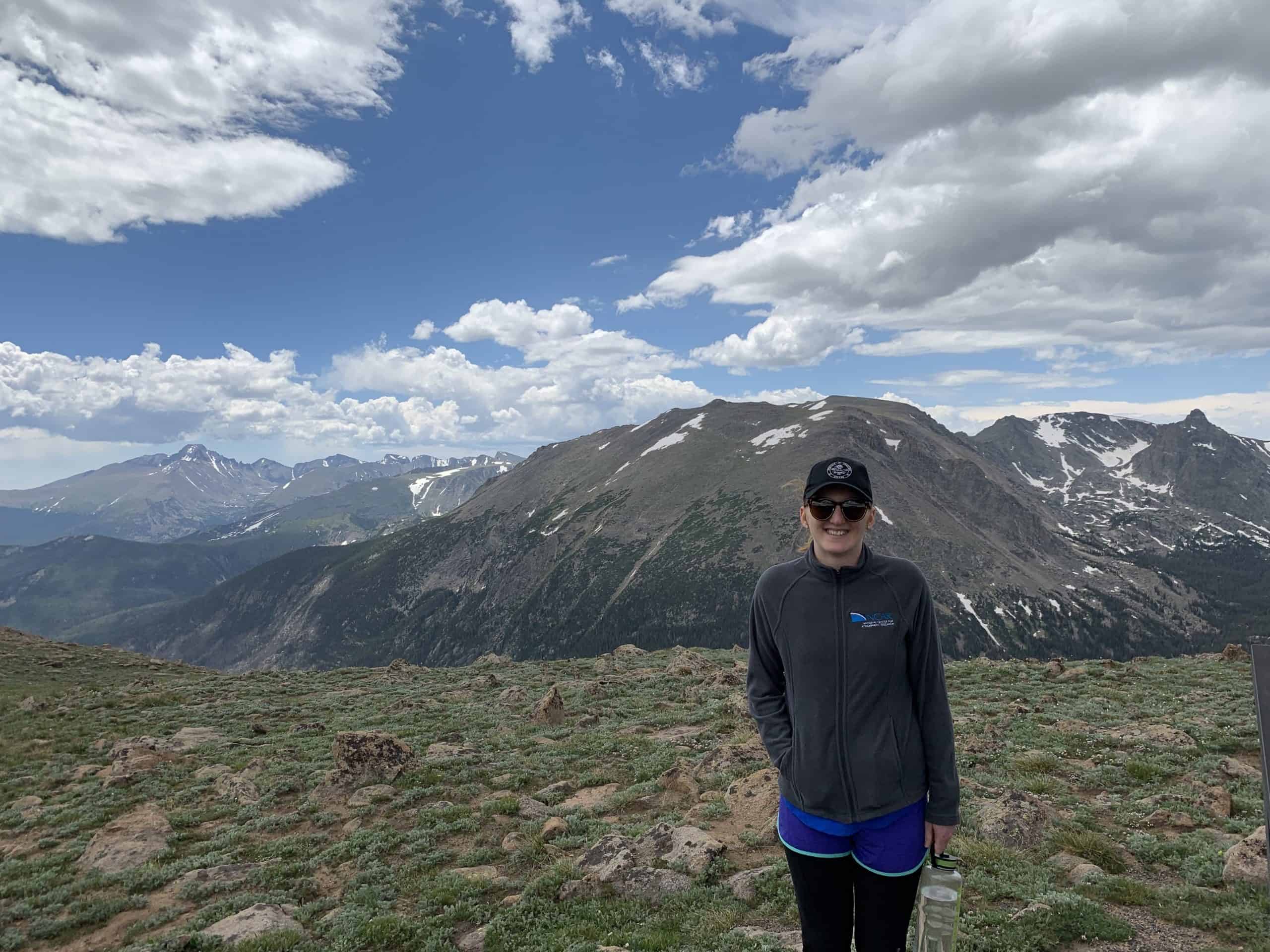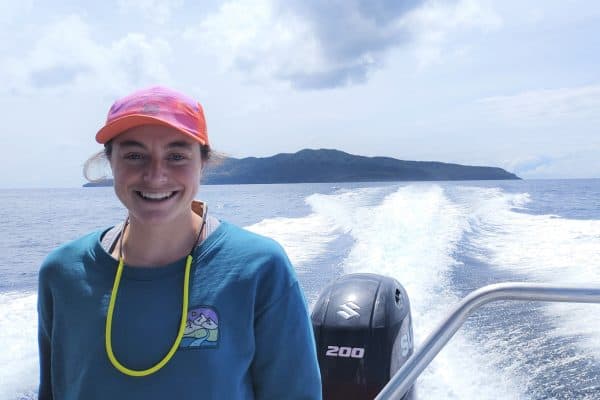Student Profile: Sara Harrison
Exploring the Data Needs for Impact-based Forecasting and Warning Systems in New Zealand
December 2019
 I’m from Barrie, Ontario, Canada – a mid-sized city north of Toronto, in between the Great Lakes. We’re exposed to lots of active weather year-round. We experience white-out conditions from snowstorms in winter, and thunderstorms and the odd tornado in summer. Severe weather has always impacted my life, causing ‘snow-days’ due to rough winter roads, or outdoor soccer game cancellations due to risk of lightning strikes.
I’m from Barrie, Ontario, Canada – a mid-sized city north of Toronto, in between the Great Lakes. We’re exposed to lots of active weather year-round. We experience white-out conditions from snowstorms in winter, and thunderstorms and the odd tornado in summer. Severe weather has always impacted my life, causing ‘snow-days’ due to rough winter roads, or outdoor soccer game cancellations due to risk of lightning strikes.
With a fascination for natural hazards and a love for reading and creating maps, I decided to study Geography at the University of Waterloo. For my honours thesis, I assessed the post-storm damage surveys conducted in Canada following potentially tornadic events. This sparked an interest in understanding how we could use crowdsourcing for disaster management, which I explored for my Masters of Environmental Studies (MES) degree, at the same university.
After completing my MES, I did some private GIS work but found that I preferred research. Fortunately, I met my current supervisor, Dr. Sally Potter from GNS, at the World Weather and Open Science Conference in Montreal just before starting my MES. We added each other on Facebook and three years later Sally posted a call for scholarship applications for a PhD project that aligned perfectly with my interests. The rest is history! In my spare time I enjoy rock climbing (bouldering), SCUBA diving, and travelling.
My project
For my PhD I aim to map out existing and potential impact data sources from severe weather events in New Zealand to support a fairly new kind of warning system: impact-based forecasts and warnings. My guiding research question is: How is impact data currently collected, stored, and shared in New Zealand and how can this impact data support an impact-based forecasting and warning system?
In answering this question, I hope to identify current and potential sources of impact data for impact-based forecasts warnings and other applications like risk/impact modelling, response and recovery efforts, as well as challenges and opportunities in sharing the data and strengthening inter-agency collaborations for enhanced disaster risk reduction in New Zealand.
To do this, I’m interviewing people with expertise in creating, collecting, sharing, and using impact data for a variety of purposes including impact/risk modelling, severe weather warnings, and response. I’m using a grounded theory methodology to identify relationships and interdependencies between components in the impact-based forecasting and warning system and associated data infrastructure. I’m taking a sociotechnical approach so that I can explore both the social aspects of data creation, sharing, and use; along with the technical capabilities, limitations, and opportunities.
My research fits under the RNC2 Weather & Wildfire theme and aims to contribute to three efforts of the theme:
- to help build national extreme weather hazards and impacts datasets,
- to increase our understanding of impacts on communities, infrastructure, and economic activity, and
- to improve the forecasting and warning services in New Zealand so that they provided more meaning to warning recipients.
My supervisors guiding me through this journey are Dr. Sally Potter (GNS), Dr. Raj Prasanna (Joint Centre for Disaster Research, Massey University), Dr. Emma Hudson-Doyle (Joint Centre for Disaster Research, Massey University), and Prof. David Johnston (Joint Centre for Disaster Research, Massey University).
Next steps
The expected outcome is to outline the process of getting impact data from the source (e.g. the public) to the end-users (e.g. Civil Defence groups, MetService, impact/risk modellers, etc) for impact-based forecasts and warnings. This will help stakeholders understand what is available to them, and how they can access and contribute to it. Within a wider scope, this will support efforts towards meeting the requirements of the Sendai Framework to build a national impacts and losses database, as well as contribute to the implementation of impact-based forecasts and warnings in New Zealand.




